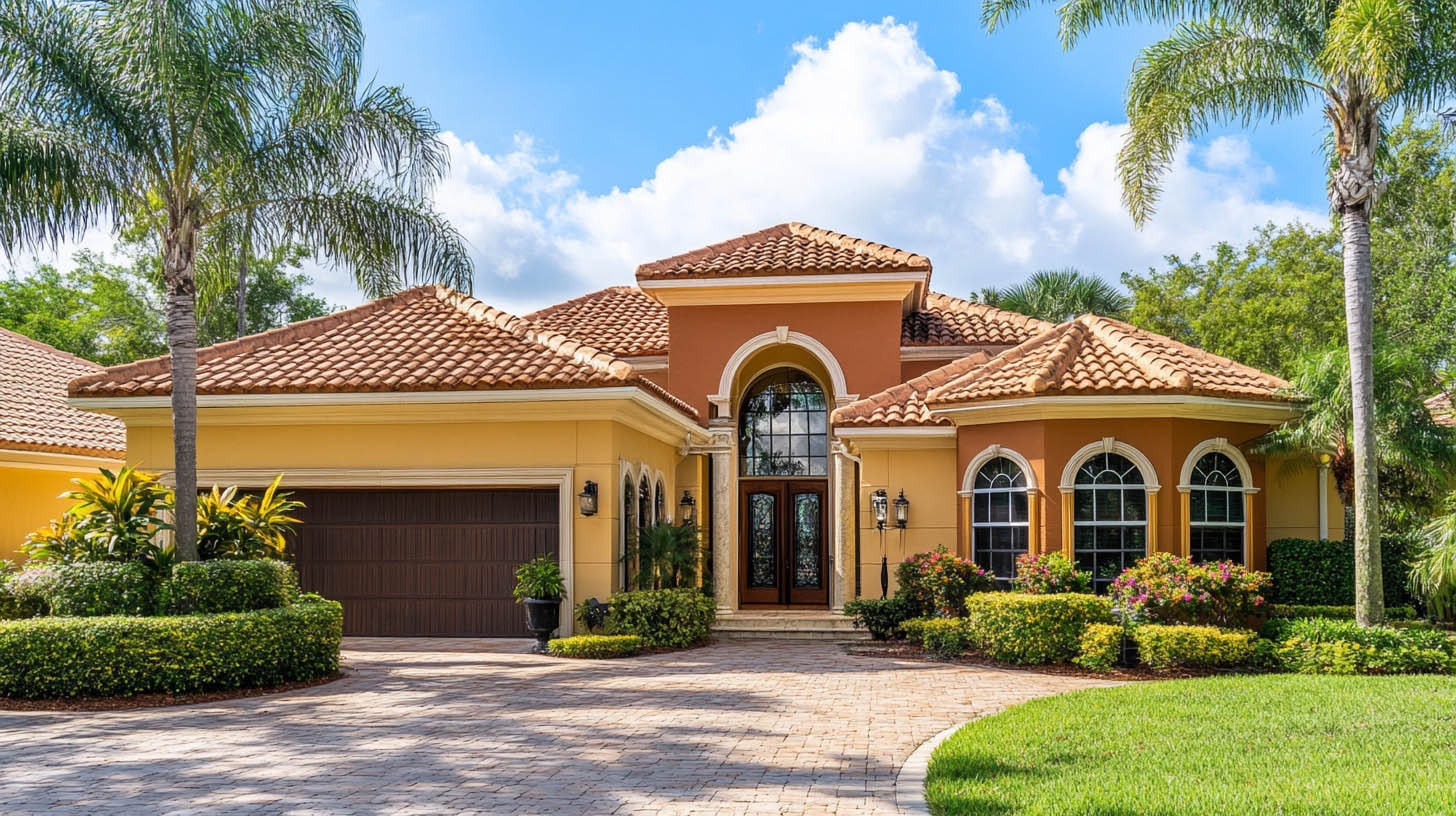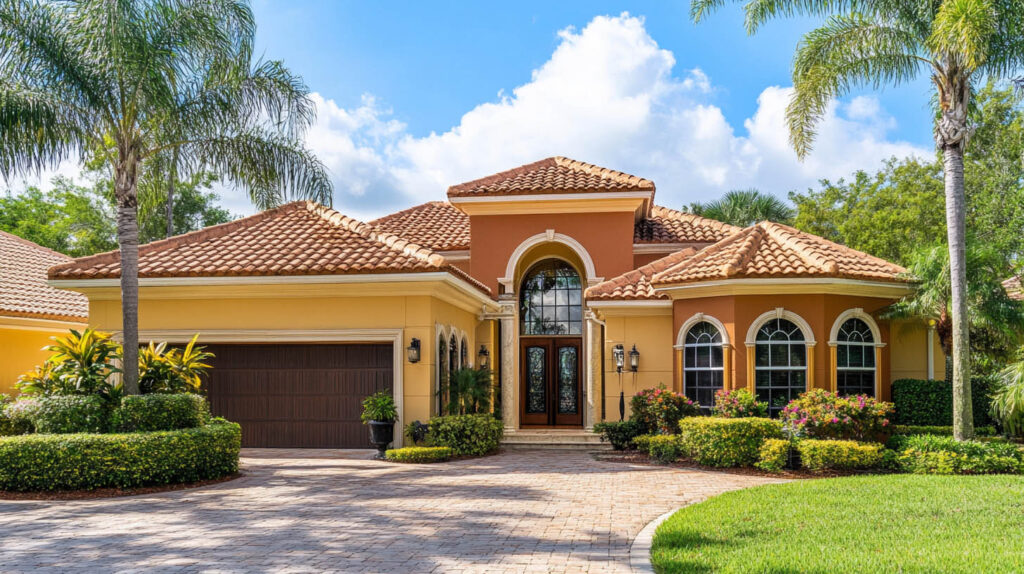
Blog
Tips for Prolonging the Lifespan of Your Roof in Florida
In Florida’s challenging climate, maintaining a healthy roof is essential to protect your home from the elements. From intense sun exposure to frequent storms, roofs in Jacksonville endure constant wear. Avenue Roofing offers comprehensive roofing services tailored to help Floridian homeowners enhance the lifespan of their roofs with proven strategies and quality materials.

Key Strategies for Roof Longevity in Florida
1. Conduct Regular Roof Inspections
Routine inspections help catch minor issues before they turn into major problems. Florida’s unique climate demands vigilance; regular checks enable early detection of damages caused by sun exposure, heavy rains, or wind. An annual inspection by professionals like Avenue Roofing can prevent costly repairs by addressing small leaks, weakened shingles, or other common issues early.
2. Keep Gutters Clean and Clear
Clear gutters are crucial for effective drainage. Florida’s heavy rains can quickly overwhelm clogged gutters, causing water to pool on the roof. This excess moisture leads to mold growth, rot, and even structural damage. A simple seasonal cleaning ensures your gutters remain free-flowing, reducing risks to your roof’s health.
3. Trim Nearby Trees and Overhanging Branches
Tree branches hanging close to your roof present a threat, especially during storms. Trimming these branches not only prevents physical damage but also reduces the buildup of organic debris on the roof. This precaution helps maintain a debris-free surface and reduces the likelihood of moisture retention and mold growth.
4. Clear Debris from the Roof Surface
Organic debris like leaves and twigs trap moisture, leading to mold and shingle deterioration. Removing debris, especially after stormy weather, reduces the chance of damage. This simple maintenance task can be done periodically, keeping your roof clean and less susceptible to Florida’s humidity.
5. Ensure Proper Ventilation
Adequate attic ventilation is vital to regulate temperature and moisture levels within your roofing structure. Without proper airflow, the intense Florida heat can degrade shingles prematurely. Good ventilation systems allow warm air to escape, keeping attic spaces cool and preventing damage caused by excessive heat and moisture buildup.
6. Check for Leaks and Address Them Immediately
Florida’s frequent rains make it easy for small leaks to escalate if left unchecked. Inspect ceilings and attic spaces for water spots or stains. When even minor leaks are detected, a timely fix prevents water from seeping deeper, protecting both the roof and the home’s interior.
7. Use Quality Materials with UV and Moisture Resistance
Given Florida’s intense sunlight, UV-resistant materials are a worthwhile investment. Roofing materials that offer UV protection minimize damage caused by the sun’s rays, while moisture-resistant options prevent rot, mold, and algae. Materials from reputable brands like CertainTeed and GAF, utilized by Avenue Roofing, ensure durability in this challenging environment.
Special Measures for Florida’s Weather
Add Hurricane Straps for Additional Security
In areas susceptible to hurricanes, installing hurricane straps provides a strong anchor for the roof, protecting your home from high wind speeds. These straps reinforce the roof structure, securing it firmly to the walls and enhancing the home’s resilience during hurricanes.
Apply Roof Coatings for UV and Weather Protection
Applying a roof coating with UV resistance helps reduce wear from sunlight and preserves the roof’s color and texture. This coating also serves as an extra waterproof layer, guarding against heavy rains and Florida’s high humidity.
Unique Fact for Jacksonville Homeowners
Did you know? Roofs in Florida can last up to 30 years with regular maintenance and proper materials, while roofs lacking these protections often require replacement within 15-20 years. This is especially true for homes exposed to Florida’s harsh sunlight and humid conditions.
FAQs
1. How often should I inspect my roof in Florida?
Twice a year and after major storms. Routine inspections help catch early signs of damage, prolonging the roof’s life.
2. What materials are best for Florida roofs?
Opt for materials with UV protection and moisture resistance, such as fiberglass shingles, metal, or clay tiles, which are highly resilient against Florida’s climate.
3. Why is ventilation important for roof health?
Ventilation reduces attic temperature and moisture, which can degrade shingles and lead to rot.
4. Can debris on the roof cause long-term damage?
Yes, debris can trap moisture, which promotes mold growth and shingle deterioration, impacting the roof’s longevity.
5. How do hurricane straps protect my roof?
Hurricane straps secure the roof to the home’s structure, providing added strength to withstand hurricane winds.
Conclusion
Maintaining a roof in Florida’s climate requires a proactive approach and quality materials that withstand sun, humidity, and storms. Avenue Roofing offers durable solutions and expert guidance to protect your roof for the long term, ensuring that it stands strong against Florida’s unique environmental challenges.
To learn more about how a new roof can improve your home’s energy efficiency, click here.



